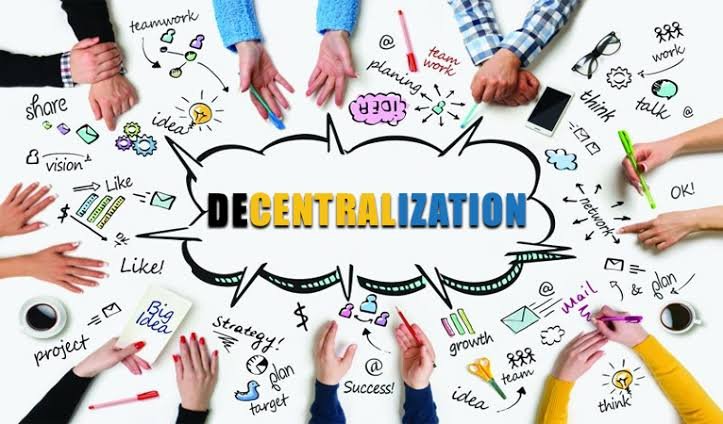Decentralization is an important concept in the world of cryptocurrencies and blockchain-based systems, it allows for a more distributed and democratic control over the network.
Decentralization helps to enhance trust in the network by distributing control among multiple entities. Without a central point of control, users can trust that transactions will be processed fairly and transparently. The distributed nature of decentralized systems means that no single entity can manipulate the network for their own benefit, as all participants have an equal say in the network’s decision-making process.
The use of consensus algorithms like proof-of-work and proof-of-stake, helps to ensure that only valid transactions are processed and added to the blockchain. This helps to prevent fraud and double spending, further increasing the trust in the network.
The transparency of transactions, which is recorded on a public ledger, can be easily auditable. This makes it easy to track transactions and identify any potential issues.
Overall, the distributed control and transparency of decentralized systems can help to increase trust in the network and give users peace of mind that their transactions will be conducted fairly and honestly.
Decentralization is a key aspect of many cryptocurrencies and blockchain-based systems that helps to enhance security. By distributing control among multiple entities, it ensures that no single point of failure or control exists. This makes the network less vulnerable to attacks, as there is no central point of control that can be targeted.
Decentralized networks are often more transparent, as all transactions are recorded on a public ledger that can be easily audited. This helps to increase the overall security of the network, as it allows for easy detection of any potential security issues.
The use of encryption and consensus algorithms such as proof-of-work and proof-of-stake further increases the security of decentralized systems. These algorithms help to prevent double spending and ensure that only valid transactions are processed and added to the blockchain. This reduces the risk of fraud and ensures that the network remains secure.
The decentralized nature of these systems also makes it more difficult for any single entity to take control of the network or make unauthorized changes. This makes the network more resilient to attacks and helps to ensure that the network remains functional even in the event of a failure.
Overall, decentralization helps to increase the security of the network, making it more resistant to attacks, fraud and unauthorized changes, providing users with a safe and secure platform for conducting transactions..
Decentralization allows for greater accessibility to the network, as anyone can participate without needing permission from a central authority. This is particularly important for individuals living in countries where traditional financial systems may be restricted or unreliable. With decentralized systems, users have greater control over their own funds, and can conduct transactions without the need for a bank or other financial institution.
Decentralized systems often have low or no barriers to entry, which can help to increase financial inclusion and allow individuals who may not have access to traditional financial services to participate in the digital economy. Decentralized systems also allow for greater privacy and anonymity, as transactions are recorded on a public ledger without revealing the identity of the parties involved. This can be especially important for individuals living in countries where financial surveillance is prevalent.
Overall, decentralization allows for greater accessibility and inclusivity in the digital economy, providing individuals with greater control over their own funds and more privacy and anonymity while conducting transactions. It also enables people who may not have access to traditional financial services to participate in the digital economy
Posted Using LeoFinance Beta
